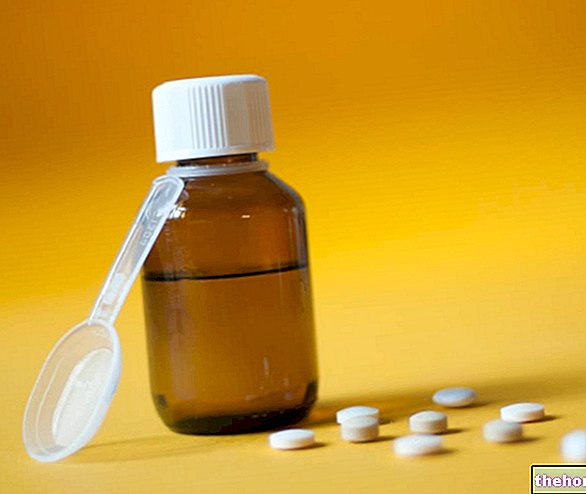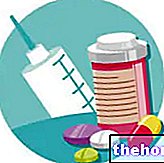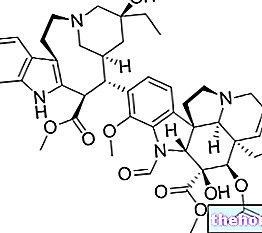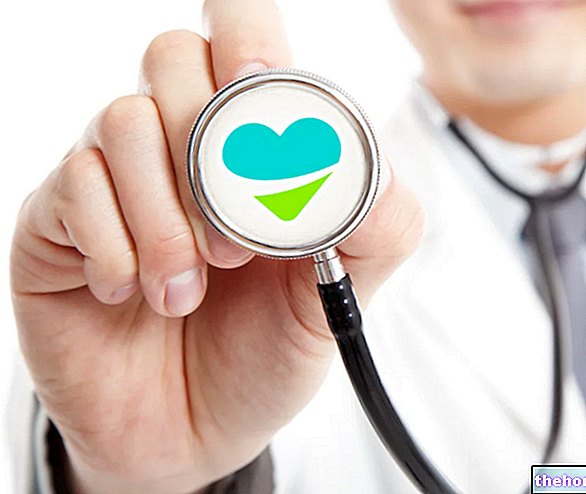Definition and serotonin
The serotonin syndrome is due to an exaggerated increase in the signal of serotonin at the central level, consequent to the hyperstimulation of its receptors. This event can be caused by the abuse of one or more drugs and / or drugs that:
- they increase the synthesis of the hormone serotonin or its precursors
- they reduce its degradation or reuptake
- they directly stimulate the receptors, called serotonergic.
What is Serotonin?

At the enteric level, serotonin increases intestinal motility and stimulates vomiting; in the blood vessels it promotes vasoconstriction, causing migraines, and platelet aggregation. Through the stimulation of sensory endings, serotonin causes pain and at the nervous level it interacts with various neurons, stimulating some and inhibiting others.
Causes
The primary cause of serotonin syndrome is hyperstimulation of the serotonin uptake receptors in the brain (5-HT1A and 5-HT2 receptors). This abnormality may be the consequence of inappropriate drug use or individual hypersensitivity; more frequently, the serotonin syndrome is related to the excessive dosage of a serotonergic drug or to the association of two different but adjuvant drugs.
Among the molecules that, combined with each other, are able to determine the serotonin syndrome, the following stand out above all:
- Serotonin precursors or serotonergic agonists (such as the amino acid tryptophan)
- Agents that increase the release of serotonin
- SSRI drugs (paroxetine, fluoxetine etc.)
- Non-selective inhibitors of serotonin turnover (doxepin, clomipramine, imipramine, dextromethorphan, etc.)
- Non-specific inhibitors of serotonin metabolism (St. John's wort, MAO)
- Hypericum and hypericin
It is also possible that the serotonin syndrome arises from the action of a single pharmacological agent. This can most likely be a precursor of serotonin (see above) or a molecule responsible for increasing endogenous release; in practice, among those that increase endogenous release we remember extasy, amphetamines, cocaine and many other amphetamine-like drugs. .
Symptoms
For further information: Serotonin Syndrome Symptoms
In most full-blown clinical cases, serotonin syndrome manifests itself on 3 fronts:
- mental and behavioral changes
- autonomic dysfunctions
- motor alterations
More specifically, the serotonin syndrome is characterized by:
- Abdominal pain
- Diarrhea
- Hot flashes
- Hyperthermia (increased body temperature)
- Sweating
- Lethargy (continuous sleep)
- Jumps in the state of consciousness
- Tremor
- Rhabdomyolysis (injury / breakdown of muscle cells)
- Kidney failure
- Shock (cardiovascular event that determines the insufficiency of blood supply to the tissues)
- Possible death!
However, only three of the following primary symptoms are sufficient in the clinical diagnosis of serotonin syndrome: altered mental status, myoclonus (short and involuntary muscle contractions), agitation, hyperreflexia (excessive reflexes), chills, tremors, ataxia (progressive loss of muscle coordination), diarrhea and fever. It is also essential that the differential diagnosis of infections, intoxications or metabolic alterations is carried out.
NB. In 75% of cases, the symptomatology of the serotonin syndrome emerges 24 hours after "ingestion or overdose"; in less important cases it is possible to wait 24-72 hours for the spontaneous resolution of the symptoms, while in the more serious cases pharmacological intervention is essential.
Bibliography:
- Guidelines for the treatment of psychiatric disorders - M. Clerici, C. Mencacci, S. Scarone - Masson - page 626
- Phytopharmacovigilance: Vigilance on the safety of phytotherapeutic products - F. Capasso, F. Borrelli, S. Castaldo, G. Grandolini - Springer - page 115
- Neurological Disease Therapies - A. Sghirlanzoni - Springer - page 611
- Emergency Medicine Signs and Symptoms - S. R. Votey, M. A. Davis - Elsevier Masson - pages 154-155




























